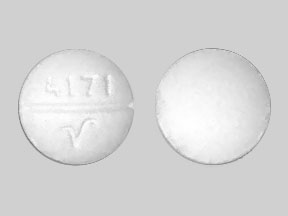Demerol (Meperidine HCL) 100mg/ml injection
$1.50
Demerol (Meperidine HCL) 100mg/ml vials/injections:
Demerol (Meperidine HCL) treats pain. This medicine is a narcotic pain reliever.
You can buy Demerol (Meperidine HCL) 100mg/ml injections online without prescription (No RX).
product price is as: per vial
Minimum order quantity is: 100 vials

Are you experiencing severe pain that requires immediate relief? Demerol (Meperidine HCL) 100mg/ml injection is a prescription opioid pain medication used to manage moderate to severe pain. Understanding its uses, potential side effects, and safety information is crucial for responsible and effective pain management.
What is Demerol Injection Used For?
Demerol, containing Meperidine HCL, is primarily used for the short-term relief of moderate to severe pain. Common uses include:
- Post-operative pain: Managing pain after surgical procedures.
- Labor pain: Providing pain relief during childbirth.
- Severe injuries: Addressing pain associated with traumatic injuries.
- Cancer pain: Managing pain in cancer patients, often when other pain relievers are ineffective.
It’s important to note that due to the availability of safer alternatives, Demerol is generally not the first-line treatment for chronic pain.
How Does Demerol Injection Work?
Meperidine HCL, the active ingredient in Demerol, works by binding to opioid receptors in the brain and spinal cord. This action blocks the transmission of pain signals, effectively reducing the perception of pain. It alters the way the brain perceives and responds to pain, providing relief.
Important Safety Information and Potential Side Effects:
Demerol is a powerful medication and should only be used under the strict supervision of a healthcare professional. Be aware of the following:
- Addiction and Abuse Potential: Demerol is an opioid and carries a risk of addiction, abuse, and misuse. It is crucial to use it exactly as prescribed and for the shortest duration possible.
- Respiratory Depression: Demerol can slow down or stop breathing. This risk is higher with higher doses, in elderly patients, and those with pre-existing respiratory conditions. Immediate medical attention is required if breathing becomes shallow or difficult.
- Central Nervous System (CNS) Depression: Demerol can cause drowsiness, dizziness, and impaired cognitive function. Avoid operating machinery or driving while taking Demerol.
- Contraindications: Demerol is contraindicated in certain individuals, including those with:
- Known allergy to meperidine.
- Severe respiratory depression.
- Acute or severe bronchial asthma.
- Use of MAO inhibitors (or within 14 days of stopping MAOIs).
- Common Side Effects: Common side effects may include nausea, vomiting, constipation, lightheadedness, sweating, and dry mouth.
Demerol Dosage and Administration:
Demerol 100mg/ml injection is administered by a healthcare professional, typically intramuscularly (IM) or intravenously (IV). Dosage is individualized based on the severity of the pain, patient’s weight, and overall health. It is crucial to follow the healthcare provider’s instructions precisely.
Interactions:
Demerol can interact with other medications, potentially increasing the risk of side effects. Inform your doctor about all medications you are taking, including prescription drugs, over-the-counter medications, and herbal supplements. Important interactions include:
- MAO inhibitors: Can cause serious and potentially fatal reactions.
- Other opioids: Increased risk of respiratory depression and CNS depression.
- Sedatives and tranquilizers: Increased risk of drowsiness and respiratory depression.
- Alcohol: Significantly increases the risk of CNS depression and respiratory depression.
Where to Get Demerol Injection?
Demerol 100mg/ml injection is only available with a prescription from a licensed healthcare provider. It is typically administered in a hospital or clinical setting. Do not attempt to obtain this medication illegally or without a prescription.
Related products
PAIN KILLERS
MEN'S HEALTH
PAIN KILLERS
PAIN KILLERS
PAIN KILLERS
PAIN KILLERS
MEN'S HEALTH










